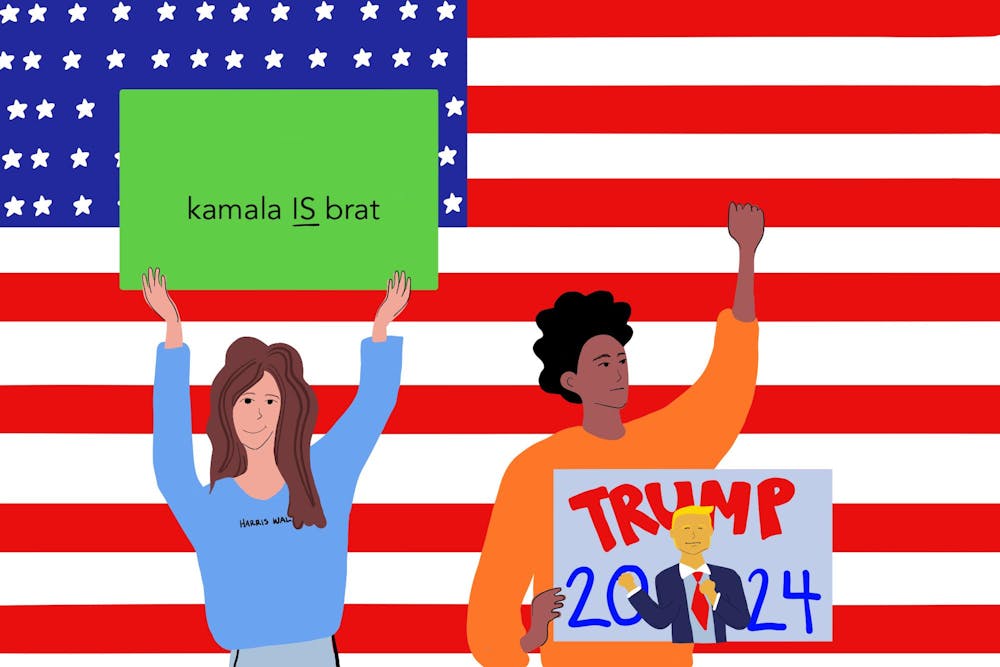The following is the sixth in a series of recurring columns designed to increase media literacy in a political climate saturated with misinformation ahead of the 2024 elections.
It's pop quiz time, since you haven't heard enough about politics lately. In the general election, who chooses the president if the Electoral College is tied? It's more than likely that you didn't know the answer. That's not to shame, it's just the statistics — less than half of young voters aged 18-29 could correctly respond to that question.
There is a very convincing and apparent case to be made for the danger of a lack of education, one that seems ever more pressing and prevalent among our voters amid a rapidly-approaching and controversial election.
Our own misinformation is unfortunate, but taken as a specific, it's not necessarily harmful to anyone beside ourselves. But the true threat of this epidemic lies with those who exploit our fundamental misunderstandings and misguidances for their own profit.
I find it highly likely that those who are most aware of our educational shortcomings are those who rely on them in order to succeed. When a candidate fuels an entire campaign utilizing voters' susceptibility to flashy advertisements and harsh slogans, they trust that we will not do the work to interrogate their platforms or research their policy suggestions. They are relying on the assumption that we are content in our lack of education.
And they're right. We let their tactics sway us, distract us, steer us away from intentional policy platforms and a demand for higher caliber, all because we are not focused on the matter at hand.
I'm not attempting to gatekeep participation in U.S. politics to only those with a law degree or a sufficient amount of historical background knowledge. I'm simply asking you to see these unsophisticated campaign strategies for what they really are — a ploy.
When Donald Trump pulled a campaign stunt at a McDonald's, he was not targeting thoughtful moderates with concerns about his suggestions for foreign tariffs or mass deportation. He was targeting uninformed and easily manipulated voters, those who can be swayed into supporting a candidate because they enjoy a Big Mac from time to time.
Though to a significantly lesser extent, the same is true for his opponent; when Kamala Harris posts edits of her outfits to pop music on her official social media, she is not targeting thoughtful moderates with concerns about her unreliability regarding climate change. She is likely targeting our very demographic — young, predominantly liberal college students, whose true motivation for absorbing her content is their love for the latest pop artist, not Democratic policy.



